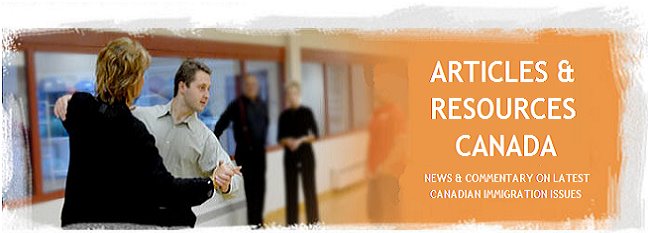Citizenship and Immigration Canada (CIC) has announced amendments to existing citizenship laws, which will retroactively restore citizenship to those who have lost or never had Canadian citizenship because of several obscure provisions in existing and former legislation. Commonly knows as ‘Lost Canadians’, these people either had their citizenship denied or unknowingly allowed to expire due to several little-known particularities in Citizenship Act, which was last replaced in 1977 after its introduction in 1947. The obscure provisions under the Citizenship Act were installed in 1977 to "safeguard the value of citizenship," but only began to potentially affect people as of February 15, 2005.
The Lebanon evacuation crisis last year and the US travel rule (WHTI) earlier this year ignited the debate over citizenship, when many of the Canadians who were applying for passports for the first time found out that they were unknowingly stripped of their citizenship. Some of these people are children of Canadian parents but who were born abroad; or they are children born in Canada but whose parents later became citizens of another country. Another significant portion of these 'Lost Canadians' are foreign-born family members of Second World War veterans, granted citizenship when they moved to Canada after the war, but were unaware of the little-known clause requiring them to reaffirm their citizenship later in life.
The proposed legislation would restore citizenship to anyone born in Canada or who became a Canadian citizen on or after January 1, 1947, and then lost his or her citizenship. This includes women wed to Canadian men during World War II (war brides) who have not yet become Canadian citizens. It also includes those born in Canada prior to 1947 who became citizens when the first Citizenship Act took effect. It does not, however, include those who renounced their citizenship with Canadian authorities, those born in Canada to a foreign diplomat, or those whose citizenship was revoked by the government because their citizenship was obtained fraudulently. Those who were born abroad to Canadian parents on or after January 1, 1947, if not already a citizen, will be recognized as Canadian citizens from birth, on condition that they are the first generation born abroad. The exceptions would be those who renounced their citizenship.
Although a bill, announced by Minister Diane Finley this past May, has now been drafted, its delivery may be delayed by a Commons committee report containing recommendations on how to deal with the problem. However, a ‘probably fine-tune’ legislation is expected by February 2008, which would create a broad and generous legislative solution to help most 'Lost Canadians' to regain citizenship status.
Just how many people across Canada risk falling into the category of Lost Canadians is one of the key questions. A CBC investigation put the number of "lost Canadians" at roughly 200,000.
The government has no estimate on the number of people who will take advantage of this legislation if it passes, but it has been estimated that proposed legislation should take care of 95 per cent of those people who either lost their citizenship or shouldn't have, or who never had it in the first place but should have, while others will be dealt with on a case-by-case basis. About 700 people have applied to have their citizenship restored until now, while in 2007 approximately 100 cases were resolved through special grants.
It's also not clear what the government would do for war brides and their children who were born before 1947. Nor is it clear whether the government would extend citizenship to second-generation children of Canadian families born overseas.
Saturday, December 22, 2007
Canada introduces legislation to restore citizenship status to Lost Canadians
Posted by
Salman Hussain
at
6:31 AM
![]()
Labels: canadian immigration, citizenship, legislation
